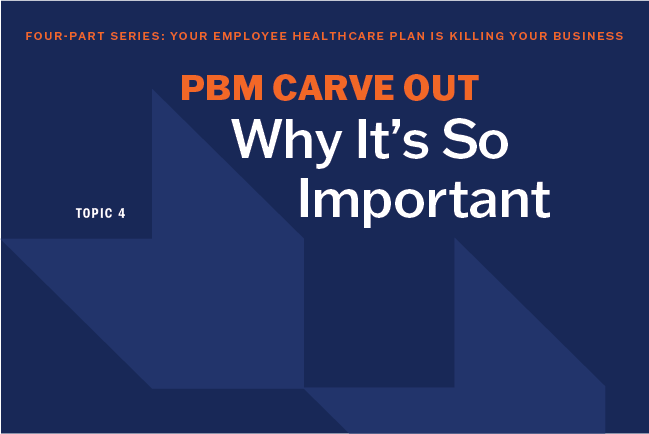
Escalating drug prices are one of the leading causes of out-of-control healthcare costs.
Today, it is possible for a $1M drug to hit your health Plan without warning as new curative drug therapies come to market. Scary as it may seem, this reality is motivating many Plans to re-think how they manage their prescription drug benefits. Without proper safeguards, Plans are vulnerable to claims for the newest miracle drugs that come with a price tag never thought possible.
Whether it’s the cost of new drugs, the spread margins on existing drugs, the mindless prescribing patterns of doctors, or the insatiable appetite for prescription drugs as a cure-all by healthcare patients, Plans must act to protect their assets. Now is the time to understand how pharmacy benefits work and how profits are realized by pharmaceutical companies, pharmacy benefit managers (PBM’s), and the array of middlemen who benefit along the way from prescription pad to pharmacy window pick up.
Plans should consult with industry experts who are knowledgeable about the PBM industry to implement strategies to manage their pharmacy benefits.
WHAT CAN WE DO?
- We would suggest removing any PBMs with ownership ties to large insurance carriers. For example, CVS/Caremark owns Aetna; Express Scripts (ESI) is owned by Cigna; and OptumRx is owned by United Healthcare. These mega conglomerates process 77% of all prescription drug claims dispensed in the United States today and report revenues of more than $400B. These PBM’s profit immensely from the current system and will work tirelessly to preserve it.
- Partner with an aligned 100% transparent pass-through PBM. With a pass-through contract, the PBM passes through the exact same discounts and dispensing fees charged by the pharmacy to the plan sponsor. Since no spread is collected, PBMs will typically earn their income by charging administrative fees.
- Require that 100% of drug manufacturer and pharmacy rebate revenues be returned to the Plan sponsor. This may seem like an easy lever to pull, but plans often fall short of ensuring all rebate dollars are properly identified and accurately credited.
- Manage drug formularies to target new-to-market drug therapies and ineffective therapeutic equivalents. As mentioned earlier, new-to-market drugs often have exorbitant price tags or may bring little or no therapeutic benefit to the drugs currently found on your formulary list. Make sure your PBM has a process in place to evaluate these components to safeguard your Plan.
Managing pharmacy spend is not easy, but it could save you $1M when you least expect it. Call to discuss how these strategies, and others, have helped BCF Group clients realize impressive prescription drug savings and sleep much better at night.
Did you miss our FREE Healthcare Webinar?
On September 9, 2021, our own Tina Wilt hosted a webinar: An Rx Playbook: Cheaper Drugs Same Quality.
What if there was a way to cut down your prescription drug costs and take back control of your company’s healthcare spend? BCF Group has an Rx Playbook, and we’re sharing it with you.
You can view a recording of the webinar on our website.
